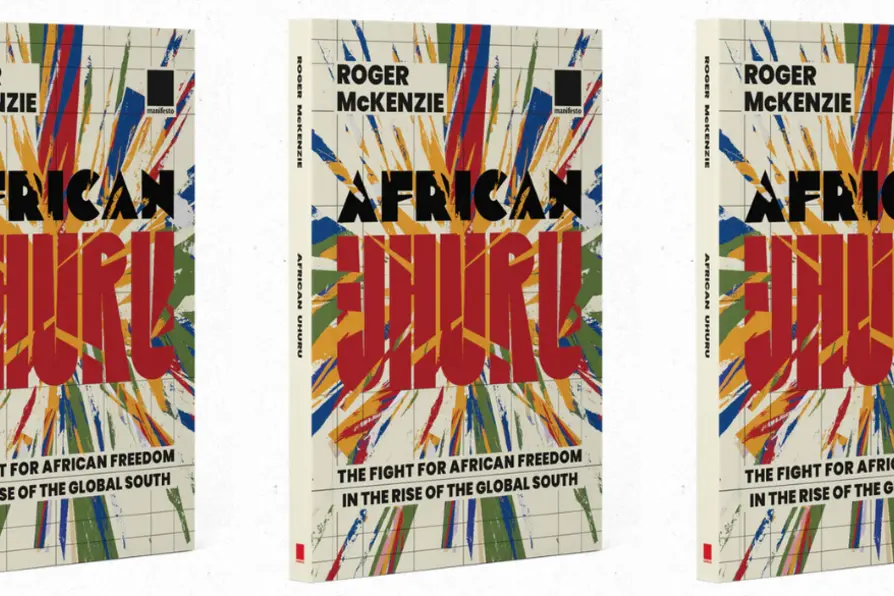The PM says Mandelson 'betrayed our values' – but ministers and advisers flock to line their pockets with corporate cash, says SOLOMON HUGHES


IN FOCUSING on the radical tradition of African self-liberation, Roger McKenzie’s book African Uhuru: The Fight for African Freedom in the Rise of the Global South draws attention to the most dynamic aspect of the decolonisation process, the unstoppable impetus to overthrow the shackles of imperial domination and traverse the path to full liberation on terms set by Africa’s people themselves.
That this process was intimately involved with global processes — the Russian Revolution; the defeat of fascism; the Latin American drive to national sovereignty against the dominant imperium; the Chinese fight to end foreign domination; and the national liberation movements of South Asia — draws our attention to the singular, particular and heroic aspects of the movement for African liberation.
For a British audience, the anti-colonial struggles of the peoples of Africa and the Caribbean are contested territory, with a powerful attempt by contemporary ideologues of empire to erase the role of slavery and super-exploitation in the creation of modern Britain.
McKenzie shows that the earliest struggles against slavery and revolts against colonial power were precursors to the fight against anti-black racism in present times but beyond that, they are an essential element in the global struggle to end every form of capitalist exploitation.
McKenzie weaves together the different strands of resistance to racism and exploitation in the metropolis with a constant reference to its foundation in the drive for profit and in the manifold forms of self-organisation and self-liberation that black and colonial peoples created.
There is no concession to sentimentality in this account but a pitiless focus on the failures of the British labour movement to make the struggle against capital a common fight. This is supplemented with practical proposals to tackle the ideological hangovers of Britain’s colonial past and its continuing role as the first reserve for US imperialism.
There is a valuable timeline detailing the long struggle of black workers to claim their place in the trade union movement and transform its practices and a revealing account of the parallel struggles in the Labour Party.
There is detail in this book which will give substance to our understanding of both the extent and depth of the fight against colonialism, racism and exploitation — but when McKenzie returns to consider the new global conditions which represent a challenge to imperial power, he points to new strategic opportunities that, for success, rest on the goal of a thoroughgoing challenge to the global power of capital.
The book supplements the powerful process of recovery in which theories of African resistance and self-liberation emerged in the developing capitalist crises of the 20th century with the transatlantic role of Pan-Africanism, which, at a critical period, animated mass movements and has a continuing presence in the consciousness of millions of people of African descent.
This includes a recovery of the central roles in African liberation played by the Communist International, the Universal Negro Improvement Association and, as fascism was defeated and decolonisation ensued, the role of the Non-Aligned Movement.
It highlights the specific role of workers of African heritage in organising an anti-racist movement which transcended the boundaries of the trade union movement to mobilise resistance to successive waves of racist reaction as post-war Britain made the transition from a boom to a deepening economic, political and ideological crisis.
Valuable passages explore the African experience in building models of international solidarity and co-operation in a world dominated by transnational institutions devoted to maintaining the new realities of neocolonialism.
Readers of the Morning Star are offered a series of four extracts from the book in advance of its publication and an opportunity to pre-order the book at a discounted price, with every order made through the Morning Star shop giving a slice of the cover price to our daily paper of working-class power and liberation.
Manifesto Press authors Roger McKenzie and Nigel Flanagan will embark on a speaking tour commencing in June at the Red University event in Cambridge. All details can be found on the Manifesto Press Linktree page. All events are free — book now to avoid disappointment as places are limited.

ROGER McKENZIE argues that Western powers can see the beginning of the end in the rise of the global South — and racist reactions are kicking in

ROGER McKENZIE expounds on the motivation that drove him to write a book that anticipates a dawn of a new, fully liberated Africa – the land of his ancestors

MOLLY DHLAMINI welcomes a Pan-Africanist and Marxist manifesto that charts a path for Africa’s resurgence











